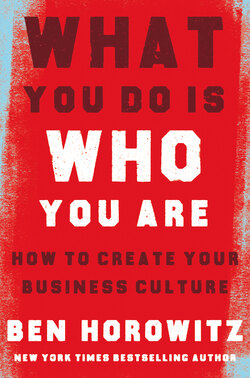Читать книгу What You Do Is Who You Are - Бен Хоровиц, Ben Horowitz - Страница 6
FOREWORD Henry Louis Gates Jr.
ОглавлениеIn the secular bible that launched the Harlem Renaissance, The New Negro: An Interpretation, the indefatigable black bibliophile Arturo Schomburg argued in his essay “The Negro Digs Up His Past” that for too long “the Negro has been a man without a history because he has been considered a man without a worthy culture.” The Puerto Rican–born Schomburg didn’t just write about recovering this subsumed culture in white America; he recentered it by amassing one of history’s greatest collections of manuscripts, art, and rare artifacts, which eventually provided the foundation for one of the crown jewels of the New York Public Library system: Harlem’s Schomburg Center for Research in Black Culture, a fortress of learning and enlightenment located at 515 Malcolm X Boulevard in the heart of historic Harlem.
Almost a century later, another visionary in our midst, the Silicon Valley tech entrepreneur Ben Horowitz, has produced a fascinating volume at the intersection of business, leadership, and culture studies that rests on the same intellectual foundation as the mighty Schomburg. There is a lesson within a lesson at play in these pages. Instead of turning out one more book using winning case studies on the importance of fostering a thriving, mutually supportive workplace culture, Horowitz roots his own definition of innovation in the deliberate choices he makes to center the leadership stories of present, past, and long past people of color far outside the C-suite or open floor plans of today’s tech giants. They include Toussaint Louverture, the genius behind the only successful slave rebellion in the history of the western hemisphere, the Haitian Revolution of the late-eighteenth/early-nineteenth century; the samurai of Japan, whose bushido code elevated virtues above values; Genghis Khan, the ultimate outsider who led one of history’s most dominant armies by absorbing the best and brightest among those he defeated; and, perhaps most moving of all, James White, aka Shaka Senghor, who, on a devastating murder conviction, stepped out of quarantine into the belly of the Michigan prison system to become the leader of a violent squad called the Melanics that, over time, he shepherded toward a culture revolution focused on community uplift after prison.
By placing these dynamic figures at the center of his study, Horowitz underscores his own reputation as one of the tech industry’s most philosophically committed innovators—someone who defines creation not as the execution of an already good idea but as an original one that is so cutting edge that it is considered contrarian at best. Here, Horowitz is out to persuade readers to adopt his experiential view that the most robust, sustainable cultures are those based on action, not words; an alignment of personality and strategy; an honest awareness and assessment of the norms imbibed on the first day of work by new—not veteran—employees grasping at what it will take to make it; an openness to including outside talent and perspectives; a commitment to explicit ethics and principled virtues that stand out and have meaning; and, not least, a willingness to come up with “shocking rules” within an organization that indelibly and inescapably prompt others to ask, “Why?”
To prove “why” himself, Horowitz doesn’t go to the usual well of Fortune 500 winners but to the outer edges of history, where we discover leaders whose stories reveal lessons and insights that are actually core to the creation of culture itself.
In its essence, What You Do Is Who You Are is a book whose content and structure—including the epigraphs Horowitz invokes from the canon of hip-hop legends—perfectly reflect the thesis at work in its pages. It also happens to be an energetic read, with surprising and illuminating applications of the lessons of Louverture, Senghor, and company to the contemporary business and political scene that Horowitz himself, as the former CEO of LoudCloud and cofounder of Andreessen Horowitz, inhabits as one of today’s most uniquely gifted leaders. In this way, Horowitz calls upon a key aspect of the African-American tradition of “signifying”—riffing as a mode of homage, a nod of admiration and respect—and he does so with penetrating insight and memorable effect. The book is also an inspiring nod to an historical tradition that intellectual antecedents such as Arturo Schomburg—caught in the throes of Jim Crow segregated America—sacrificed so much to canonize, hoping that generations hence would see “behind the veil,” as W.E.B. Du Bois put it, to mine lessons for a new, truly cosmopolitan world culture in which they could only dream of flourishing. By centering his transformational volume on culture-makers whose wisdom is found on the margins, Horowitz gives us an instant classic with the potential to redefine “what we do” and, thereby, “who we are.”
